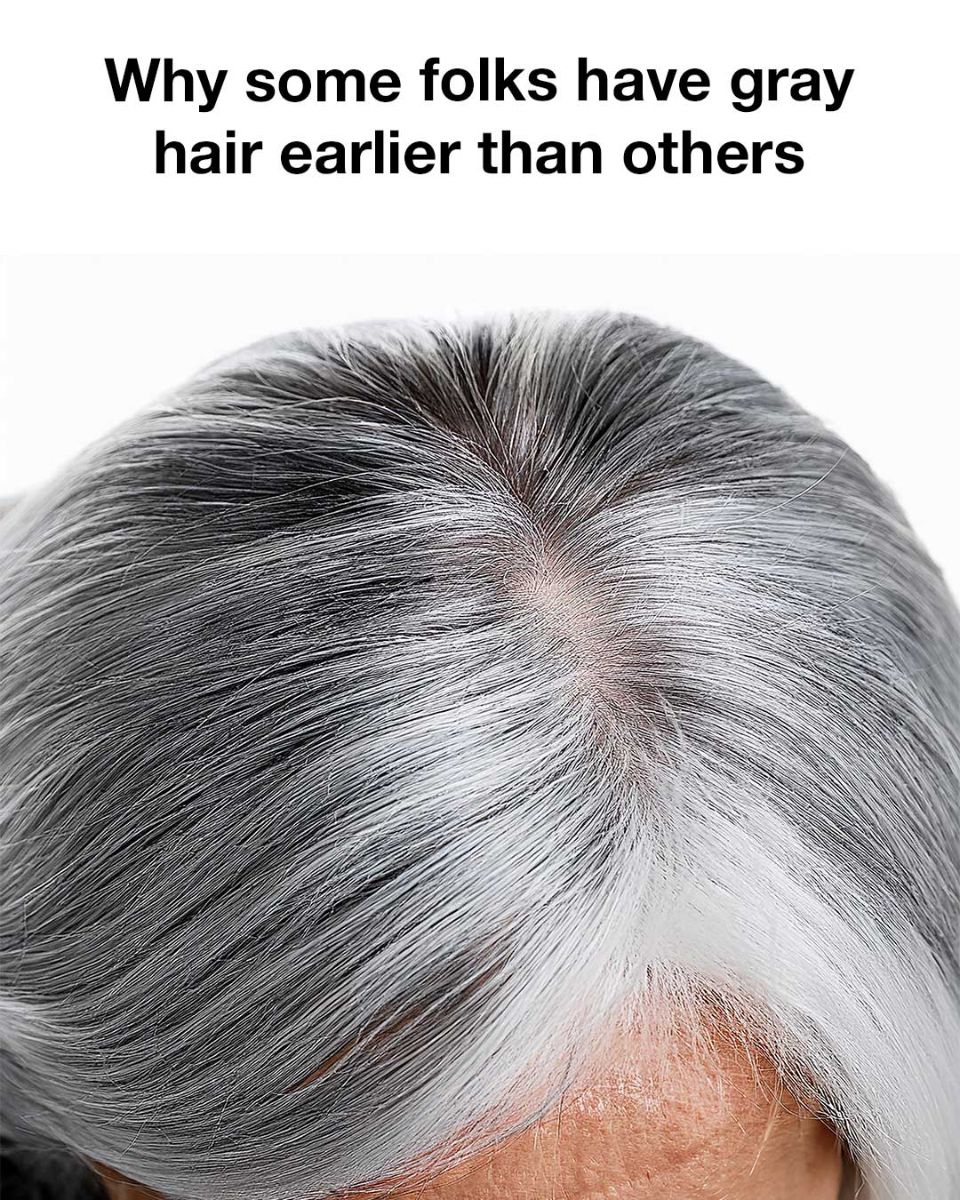Environmental Factors
External environmental factors such as exposure to ultraviolet (UV) radiation, pollution, and chemical hair treatments can damage hair follicles and melanocytes, hastening the graying process. For example, UV radiation generates free radicals that degrade the melanocytes’ ability to produce melanin. Constant exposure to harsh chemicals in hair dyes and bleaches also contributes to premature graying.
Lifestyle Influences
Lifestyle choices significantly impact the onset of gray hair. Smoking, poor diet, lack of sleep, and sedentary lifestyle are known contributors. Nicotine and other toxins in cigarettes cause oxidative stress, damaging melanocytes. Meanwhile, poor nutrition may deprive scalp follicles of essential vitamins and minerals, undermining hair health.
Health Conditions and Nutritional Deficiencies
Certain health conditions and nutritional deficiencies can contribute to early graying. Autoimmune diseases, such as vitiligo and alopecia areata, can target melanocytes, reducing melanin production. Deficiencies in Vitamin B12, folic acid, and other essential nutrients can also weaken hair follicles and expedite graying. Ensuring a balanced and nutrient-rich diet is crucial in mitigating this risk.
Stress and Its Impact on Hair Color
Chronic stress is a well-documented factor in premature graying. Stress triggers the release of cortisol and other hormones that can damage melanocytes and interfere with their ability to produce melanin. Additionally, oxidative stress from emotional strain can accelerate the overall aging process, including hair graying.
Preventive Measures and Treatments
While it is impossible to fully prevent genetic predisposition to early graying, adopting specific strategies can help delay its onset. Stress management techniques, dietary changes, and protective hair care practices serve as the cornerstones of preventive measures. Understanding and addressing underlying health issues can also mitigate the risk.
Dietary Changes to Prevent Early Graying
Consuming a balanced diet rich in antioxidants, vitamins, and minerals can support hair health and delay graying. Focus on foods high in Vitamin B12, folic acid, copper, zinc, and iron. Incorporating leafy greens, eggs, nuts, seeds, fish, and fruits can provide essential nutrients that promote melanocyte function and melanin production.
continued on next page
ADVERTISEMENT

